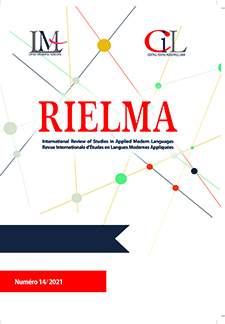Communication interpersonnelle et interprétariat dans les institutions hospitalières publiques camerounaises
Interpersonal Communication and Interpreting within Cameroonian Public Hospitals
Author(s): Richard Bertrand Etaba Onana, Nicole Gerardine Mambo TamnouSubject(s): Health and medicine and law, Translation Studies
Published by: Risoprint
Keywords: interpersonal communication; interpreting; official languages; national languages; medical care;
Summary/Abstract: Interpersonal communication is established, when its actors do not share the same language, via a linguistic mediator called an interpreter. However, in Cameroonian hospitals, not all speak French and English despite these two being official languages alongside nearly 300 native languages. Chinese doctors then consult when they speak these languages approximately. The fact is that a patient who speaks neither French nor English manages to interact with the doctor. Translation and interpreting services are not functioning. However, there is essential communication between medical staff and patients. During the colonial period, special services were created to establish communication between the indigenous peoples and the settler doctors. Based on a qualitative survey conducted as part of our research work in nine Cameroonian public hospital institutions, in this article, we propose to show, on the first hand, how communication is established between doctors and patients who do not speak any of Cameroon's official languages. On the other hand, it looks at the need to set up translation and interpreting services in Cameroonian hospitals in line with its sociolinguistic context.
Journal: Revue Internationale d'Études en Langues Modernes Appliquées
- Issue Year: 2021
- Issue No: 14
- Page Range: 42-52
- Page Count: 11
- Language: French

